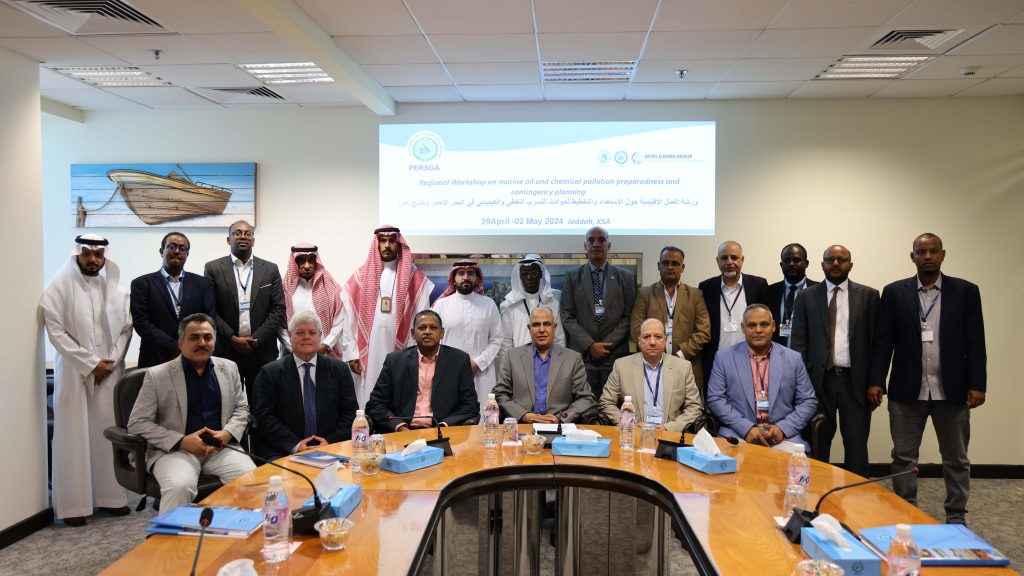Sixteen officials responsible for the preparedness and response to oil and chemical spills from PERSGA States gathered from 29 April to 02 May 2024 in Jeddah, Saudi Arabia, at the Headquarter of the Regional Organization for the Conservation of the Red Sea and Gulf of Aden (PERSGA), for training on oil and HNS spill response as well as on the preparedness and updated incident/spill notification and coordination procedures in the region.
The aim was to refresh participants about information on the contingency and response planning and the IMO requirements, special focus given to the EMARSGA modelling capability and its recent upgrade and additional development. In addition, it was aimed to introduce to the region the newly updated and revised regional contingency Plan counting Hazardous and Noxious Substances spills at sea. The training provided platform for vital discussions on oil and chemical spills issues in the region and fostered an environment conducive for knowledge sharing and exchange of ideas.
Participants discussed the pollution reporting systems, data and knowledge sharing and factors affecting full implementation of IMO conventions related to the intervention and salvage at sea, including incomplete transposition of international and regional conventions and its amendments into national legislation. Recommendations to address the existing barriers were also discussed.
The workshop was organized by the Regional Organization for the Conservation of the Red Sea and Gulf of Aden (PERSGA), through the regional project SFISH “Sustainable Fisheries Development in the Red Sea and Gulf of Aden”, which is supported by the World Bank and executed by PERSGA in the region.
The participants were provided with updates on the current efforts undertaken by the Regional Organization (PERSGA) to provide technical support to PERSGA States in order to facilitate regional cooperation for prompt and effective response support to major marine incidents in the region that could have detrimental impacts to the marine ecosystems as well as on national economies.
The training was delivered by an international facilitator with significant experience in HNS spill management, in addition to experts from PERSGA and EMARSGA.

